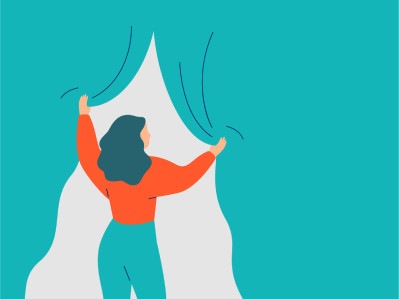With a DVA White Card, eligible veterans can access fully funded mental health care—no diagnosis or proof of service-related cause required. Support is just a step away.
Repetitive transcranial magnetic stimulation (rTMS)
About Repetitive transcranial magnetic stimulation (rTMS)
Repetitive transcranial magnetic stimulation (rTMS), is a proven treatment for depression and other psychiatric disorders.
rTMS is a non-invasive procedure that involves the focused application of magnetic energy to superficial regions of the brain, inducing small electrical currents. rTMS works by changing the brain electrical activity and the brain chemicals that are involved in controlling mood.
The potential benefit of rTMS for you is that it may lead to an improvement in your mental health condition. rTMS has been shown to be a highly effective treatment for a number of conditions however, not all patients respond equally well.
As with all forms of medical treatment, some patients recover quickly, others recover only to relapse again and require further treatment, while others may not respond at all.
It may take up to two weeks after the rTMS treatment is completed before symptom improvement occurs although most patients report an improvement within the course of the treatments. Some patients may also require further follow up treatments.
This program may be suitable for you if:
- you're an adult patient with treatment resistant major depression, and have failed to achieve a satisfactory response from prior trials of antidepressant medications (defined as “treatment resistant depression”).
- you are a patient with anxiety, even if significant depression is not present. Although its use is not as well-established as in the treatment of depression, rTMS therapy may also help.
- you are a patient with GAD. A small number of studies have suggested that rTMS may benefit. The protocol available at rTMS Australia is based on this research and it aims at reducing activity in an overactive area of the brain.
- you have Obsessive Compulsive Disorder (OCD) and suffer from obsessive thoughts, which are intrusive and persistent. Studies have shown rTMS is increasingly being used for patients suffering from OCD.
- you are a patients PTSD, as PTSD is frequently in combination of depressive symptoms, anxiety. rTMS can be helpful in improving mood and reducing anxiety. There is emerging evidence that rTMS may also reduce some of the troublesome symptoms of PTSD itself.
Program content
Session 1 – initial TMS assessment
A one-hour initial assessment consultation will be arranged with a psychiatrist to determine your suitability for TMS. Pre-treatment screening, baseline outcome measurements and patient consent will also be obtained. Once assessed as a suitable candidate for outpatient TMS, the patient is listed and booked for TMS and notified of the resting motor threshold (RMT) appointment.
Session 2 – resting motor threshold
A resting motor threshold is conducted by a psychiatrist with specialised training in TMS, which acts as the prescription for the basis of the treatment.
Acute course booked
An acute course of 20 treatments of TMS is then booked. Treatment is administered 5 days a week. Ongoing reviews with the treating/prescribing psychiatrist can be booked via the psychiatrist's private practice.
What you will experience
TMS treatment delivers magnetic fields via a coil that is applied to one side of the patient’s scalp, generally above the left side of the head (above the dorsolateral pre-frontal cortex). Your first appointment typically lasts about 60 minutes. During treatment, you hear a clicking sound and feel a tapping sensation on your head. Many patients will be able to listen to music, watch television, read a magazine or talk to the credentialed mental health clinician who stays with you during the treatment.
Treatment objectives
Benefit 1
It is a drug-free treatment and can be used safely in combination with your current treatment regimen.
Benefit 2
It may work faster to improve your mood, understanding and everyday function compared to antidepressants and psychological therapy.
Benefit 3
It has a shorter treatment time of 4-6 weeks compared to antidepressants and psychological therapy, which range from a few months to lifelong therapy.
Benefit 4
It can be more effective than medication and is recommended for patients who have not responded to antidepressants.
Benefit 5
TMS can be stopped at any time, there are no withdrawal symptoms.
Benefit 6
TMS does not cause memory loss, weight gain, sexual difficulties and is not damaging to your scalp or hair growth.


